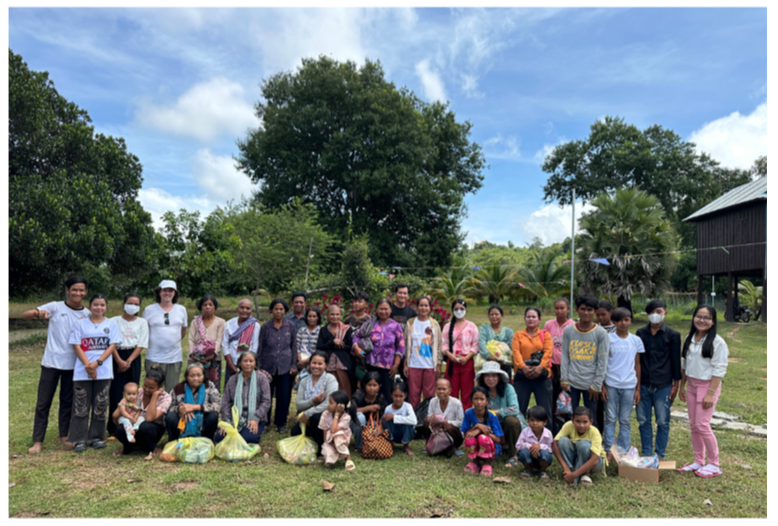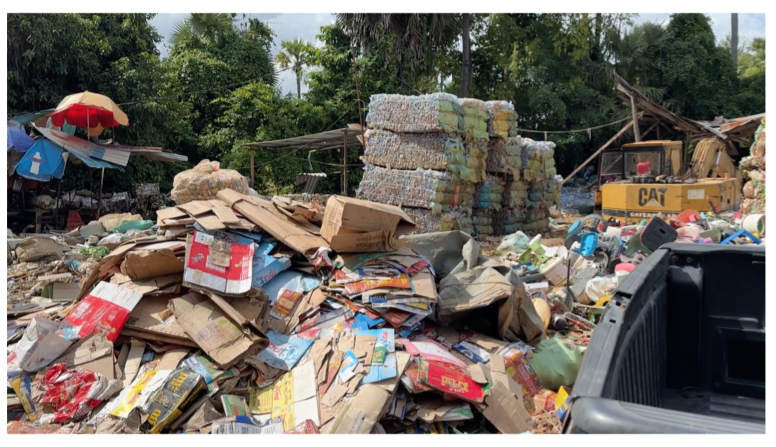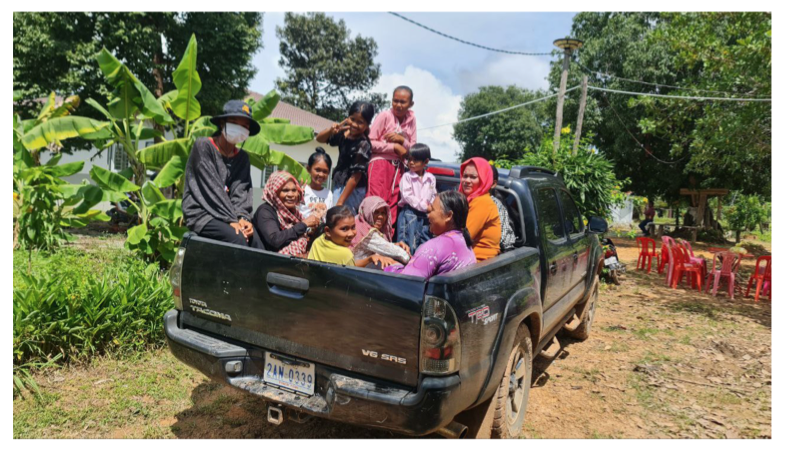Cambodia 201
Hark. So the plan is to go to a place called Living Water Farm, run by a guy called Vatanak. The farm is a project he created on his families land and the purpose is to provide a range of services for the poor people in the hill community surrounding it.
You an see many of these people in the previous edition, and you’ll probably recognise some of them from the photos in the coming pages.
I’m told one of the problems Vatanak would like to address with the community is their unwillingness to share with each other. This is a symptom of ingrained poverty. They’re so used to being in survival mode with a lack of almost everything it’s making them less loving to each other, and more afraid and self focused.
It’s quite typical of impoverished communities to be like this, we often think of them as being somehow idealised, pooling their resources, but human nature is not like that, not for the rich, nor the well off, nor the desperately poor. Poverty is aggravating the situation and degrading their humanity towards each other, that’s the hard truth of it, so we had a bit of an idea.
Rather than give a food parcel to each person or family, we would bring them all together in one place, and ask for five volunteers to distribute the food and supplies to everyone. The aim was to allow them to have an abundance to share and give to each other, and for them to be the ones doing it, not us.
If they could be the one giving to each other, and we were almost forgotten about, that would be ideal. And we wanted to make it fun, a bit of a game, rather than the conventional positions of giver and receivers.
So we bought about 60 bottles of sauces and oil, a similar number of tins of fish, loads of hygiene supplies, about 50kg of rice, and God knows how many packets of noodles, and off we went to try this new way of giving and sharing.
Vatanak welcomes us and shows us the main building, built from donations from America, it serves many functions, including an education hub where the children learn computer skills and typing, also a place of worship, a meeting room, a kitchen, and dorms for people, especially young people, who need to get away from their home situation for whatever reason.
Then all the community gathers in the main room and Vatanak explains the game and five volunteers from the young people are requested. Me and Muylen sit on the sidelines and do little more than enjoy watching.
Vatanak gave us a tour around the farm, size wise, think the main field in Endcliffe Park. But tropical hot, and a bit jungley.
He’s trying to make it work as a community farm of sorts, there’s a couple of cows, some chicken and ducks, a pool for frogs, and various crops growing, trying to grow, including coconut trees, bamboo, and a few others. It’s hard, the soil is sandy, one plan we are working on is to get some goats, which can be tethered and allowed to eat everything within their range. This will have the effect of removing the grass and shrubbery whilst fertilising the soil for a crop, perhaps beans or peas. It feels a lot harder to get anything done there. The heat, the lack of heavy machinery, but persistence is fertile.
We then went on a guided tour of the region, Vatanak driving the community people back to their homes in the process. At one point he took us through a rubbish recycling yard, and told us about the owner, who started out as a rubbish collector, picking up plastic bottles from the side of the road, and built himself a substantial enterprise, big trucks, a big yard, men and women working for him. I shook hands with the guy, short, stocky, very strong and healthy despite, or perhaps, because he lives in an environment that would put most Westerners, including myself, in hospital within a week.
The curious thing is that whilst he’s actually wealthy now, even perhaps by Western standards, he still lives with his wife and children in a large elevated shack in the middle of the rubbish yard. I joke with Vatanak that he worked hard and brought himself up from the bottom, and he brought the bottom up with him.
I respect him for what he’s achieved, he now employs people, and through them keeps the entire region free from recyclable litter, he’s staying in his community, improving it, being part of it, and in doing so demonstrating to everyone else what can be achieved. He was probably looked down on when he was a litter collector, but I get the feeling he didn’t care then and doesn’t care now. God bless him!
You might recognise this dwelling from one of the previous editions, it looked familiar to me and Muylen explained how we had previously supported the person who lives there.
It was really heartening to meet some of the people for the first time, I recognised them from the magazine but hadn’t been the one to meet them in person.
Then we went for a stroll through the jungle via these strange steps, down to a kind of lake…
Hard work, hard lives, good day.


